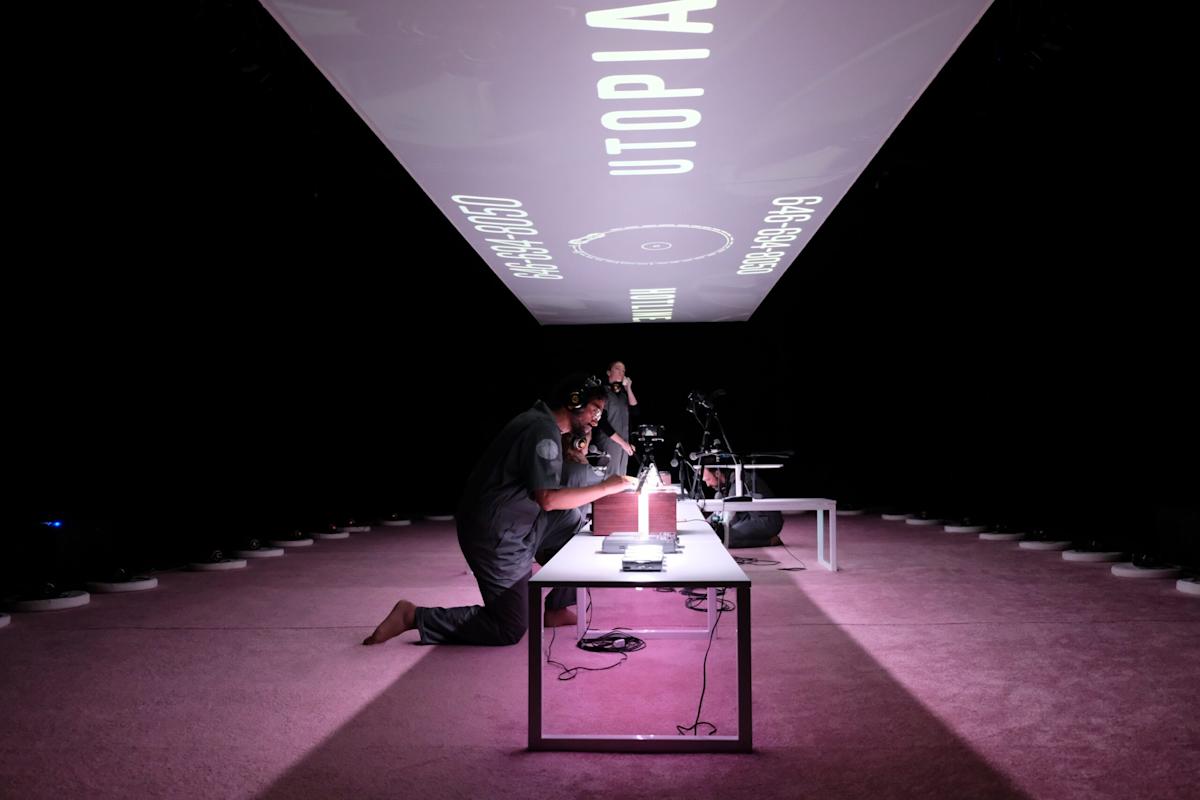Lincoln Center’s Collider Fellows explore how tech could transform the performing arts
At a time of high anxiety around technology’s impact on arts and culture, Lincoln Center for the Performing Arts’ Collider Fellowship is a program that welcomes multi-disciplinary artists to explore the opportunities that new tech presents for live performance and the performing arts.
Today, the famed New York performing arts center is announcing its second class of Collider Fellows — a group of six artists working in areas from virtual reality to artificial intelligence to the immersive 4DSound System.
“I love that they’re all really thoughtful people who are not just thinking about [the work] itself, but how it fits into a larger conversation in arts and technology,” said Lincoln Center’s vice president of programming Jordana Leigh.
Leigh added that she’s an “eternal optimist” about how tech can benefit the arts. When asked about broader worries around AI, she countered that she’s excited about artists who can use AI as “another tool in their toolkit, like a mixer for sound or a paintbrush for paint.” She also suggested that for some artists, “technology is catching up to their vision, versus their vision catching up to this technology.”
To illustrate some of this potential, Leigh pointed to Dream Machine, a installation by one of the first Collider Fellows, Nona Hendryx.
Leigh said by using a combination of AI, VR, and augmented reality to immerse visitors, especially BIPOC visitors, in Afrofuturist environments, Dream Machine shows how art can help “people who do not see themselves in technology to start seeing themselves in it — particularly Black and Brown people, especially Black and Brown women.”
“I think the more people who are part of the conversation, the more chance we have for it to be a good conversation,” she added.
The new Collider Fellows, selected through a nomination-based process, will continue exploring that potential. For the next six months, they’ll be provided with studio space at Lincoln Center and Onassis ONX, along with a financial stipend and support from Lincoln Center staff.
The Collider Fellowship, Leigh added, is part of a broader umbrella of programs through which the performing arts center seeks to support artists in “non-transactional” ways.
Notably, the fellowship does not require participating artists to complete a final project or commission. Leigh said that the first class of Collider Fellows included one artist who completed “five or six prototypes” during the program, while another wanted to “take this time to rejuvenate, read tons of books, do tons of research, slow down” — she said both approaches are “completely acceptable ways to use this fellowship.”


